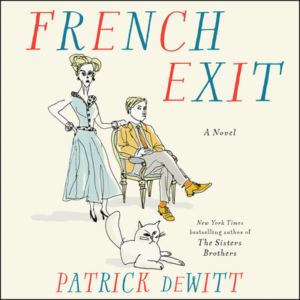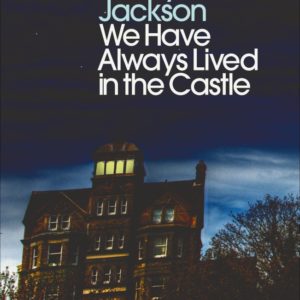Fall 2018
 Bye summer 2018. It was a trying one; a summer that delivered a mountain of crummy things but once we got over it all, well the other side seems, for now, all sunshine and pirouetting daisies. Despite the summer rigmarole I read an armful of books that provided constancy while the rest of the summer tumbled onward willy-nilly. Here are a few recommendations:
Bye summer 2018. It was a trying one; a summer that delivered a mountain of crummy things but once we got over it all, well the other side seems, for now, all sunshine and pirouetting daisies. Despite the summer rigmarole I read an armful of books that provided constancy while the rest of the summer tumbled onward willy-nilly. Here are a few recommendations:
Shirley Jackson had it rough throughout her too short life and if you read her biography, A Rather Haunted Life, you will see what likely gave rise to her horror stories, many of which centered around ‘home’ or ‘house’ or ‘hometown’.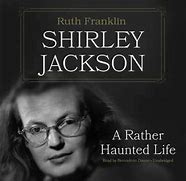
A Rather Haunted Life aligns to a theory I have that women of the Silent Generation are the saddest generation of all women (it includes women who were born after WW1 through 1940 or so). They were told things like –now you can vote! yes, we will accept you to college!– but they weren’t supported in those things and it took extraordinary women to vote their minds, go to college, and take paying jobs that were
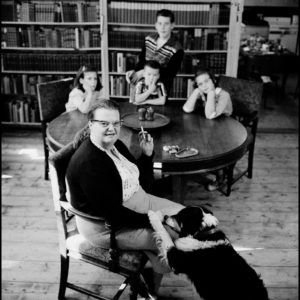
often beneath their abilities and/or education. This was the generation of women who felt they had no choice but to leave a job when they had their first child, or they were fired for getting pregnant in the first place. And the truth is most women of the Silent Generation moved from their family’s house straight to their husband’s house. It took decades of incremental changes to bolster the opportunities women of the Silent Generation were told were theirs for the taking. The stacked deck of society really screwed with these women’s expectations and dreams. I think this made them very sad, a lot frustrated, and a little bit crazy (check: my mother, Carmen Esperanza b. 1931). In the 70’s things started to change, here are two small examples that helped make opportunities more fair.
1974: Equal Credit Opportunity Act: Until then, banks required single, widowed or divorced women to bring a man along to cosign any credit applications.
1978: The Pregnancy Discrimination Act: Until this law, women could be legally fired for being pregnant.
Shirley Jackson was a bright young woman born to an unstable society mother who discouraged Shirley’s intellectual development, made fun of Shirley’s looks and weight, and even went so far as to say she wished she would have aborted Shirley. Nice, mom.
After those agonizing years with Mom, Shirley married Edgar Hyman, a writer for The New Yorker and a professor at Bennington. Things weren’t much better at her second home. Edgar had many affairs, mostly with his ex-students (nice hunting ground, Edgar). And Shirley ended up having numerous children, 4 to be exact. She also kept a sloppy, disorganized home, which drove her fastidious adulterous husband nuts, and in the thick of all that, Jackson produced stellar horror fiction, which today is still critically acknowledged.
Jackson is probably best known for her short story “The Lottery”, originally published in The New Yorker in 1948. You’ve read the story if you are an American of either the 20th or 21st century, but you may not know that Jackson’s provincial Vermont neighbors were used as the prototypes for the creepy townspeople in the story.
Shirley Jackson wrote that when she went to the hospital to deliver her third child, the admitting admin asked for her occupation. “Writer,” Jackson said. To which the admin responded, “I’ll just put down housewife.”
Jackson is the author of two slim novels I read this summer, The Haunting of Hill House and We have Always Lived in the Castle. Both are wonderfully gooey Gothic horror / witchy ghostly treats. And in both novels clever talented women are trapped in decaying or haunted homes. You should read both books; the novels are straightforward and superior horror stories that would be fun to read around Halloween. And if you are interested in biographies on the unique ways in which talented women writers thrived and failed in pre-1970’s America, Franklin’s A Rather Haunted Life, is mesmerizing.
I read other books about women in their houses this summer. Circe by Madeline Miller is the story about the goddess witch who was banished by her father (Helios) to an isolated island, Aeaea. I know nothing of Greek Mythology, but Miller’s retelling of Circe’s life was captivating. I am ready to learn more. 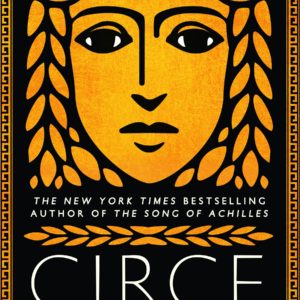
Miller reconstructs Circe’s childhood and imagines the roots of Circe’s personality and witchcraft. As a young goddess Circe is mocked by her more elegant and powerful family members. Because her family makes Circe feel like such an outsider, Circe escapes their presence often and wanders outdoors alone. On a sunny morning she meets a handsome human sailor and falls in love so completely she creates one of the world’s first spells capable of turning a human into a god. Circe’s witchcraft is found out and she is banished by her father and Zeus.
The novel takes a feminist lens to Circe’s life, which I imagine was not how Circe’s story was originally told. Here’s one of my favorite parts: vulnerable because of her isolation and banishment, sailors come ashore to Circe’s island and surreptitiously plot to take advantage of her and her hospitality. To protect herself, Circe spends a millennium perfecting her potions and spells. My favorite: she turns would-be rapist sailors and thieves into pigs.
Here’s another favorite part, Circe creates a lovely home for herself, stocked with fine cloth, bottles of wine, stores of scrumptious food, and gardens of herbs (not to mention a teeming sty of pigs). So, as her life on Aeaea progresses, Circe’s isolation enables her to flourish and create a magical safe home.
Circe is a sprawling tale and Miller’s writing adds layers to Circe’s story with many different personalities I’ve heard of but never had a reference for (characters like Pan, Helios, Minotaur, Daedalus, and Circe’s second great love, Odysseus). My guess is that Circe will be on many of the Best of 2018 list.
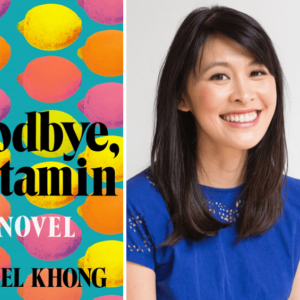
Goodbye, Vitamin is Rachel Khong’s first novel and I look forward to her second. This is a story of a young woman, Ruth, recently dumped by her finance who is asked to come home to her parent’s house to help with her father, who is suffering from dementia. It is a sad, serious subject especially since Dad in this case is a cheater and taking care of the old philanderer stirs up conflicted feelings in Ruth and Ruth’s mom.
This book smartly lacquers the bright over the dark by adding love interests and fun friends. The diary format keeps the story light and moving along. If you pick this book up to read, you’ll finish it in a day.
Prairie Fires: The American Dreams oF Laura Ingalls Wilder by Caroline Fraser dispels the idea that the life and times we read (and watched) of the Ingalls’ family in the Little House books were an accurate portrayal of their life. Fraser’s well-researched book examines the Little House mythology by factually tracking the Ingalls family difficulties as they tried to build a sustainable farm in a variety of places.
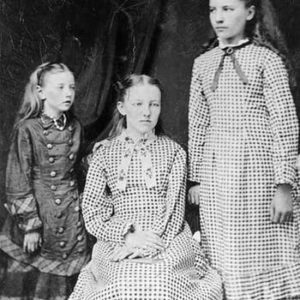
Fraser brings in a broader historical context in her book as she tracks the Ingalls’ pioneer life, and while it was less than ethically stellar, it wasn’t much different from what other pioneers did as they settled the frontier. The result of all this detailed research and expert storytelling is not just a great biography but also a disturbing book on How the West was really Won. This book is a great read, and an eye-opening one too.
Remember Patrick DeWItt the author of The Sisters Brothers? His newest novel is called French Exit and I just finished it. It’s funny; it’s a comedy of manners set in present time. I’ll tell you just a few things about the story. There are 3 main characters, Frances, Malcolm, and Small Frank. Frances is a wealthy 65-year-old New York socialite who is running out of money rather quickly. Frances is also mother to a 32-year-old man-child named Malcolm, who is loveable despite his bored detachment with everyone and every place. And then there is Small Frank who is an old decrepit black cat that really is Frances’ dead husband, Franklin.
I’ll tell you another thing about this book, French Exit is a phrase used to describe the situation where someone covertly leaves a party or formal event without saying goodbye to the hosts and friends. The book opens and closes with a French Exit. And between the start and the end you’ll meet all other kinds of reckless, charming, and eccentric characters. And I would wager you’ll have a big smile when you read DeWitt’s 4th novel.